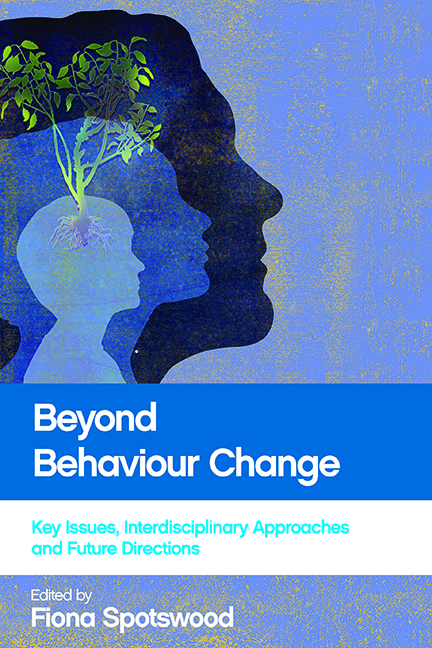eight - Technology and the formation of socially positive behaviours
Published online by Cambridge University Press: 01 September 2022
Summary
Introduction
This chapter explores the impact that technology has on our behaviour, and how it can be – and is being – used purposefully to achieve change. Since the first basic stone and bone tools were used by Plio- Pleistocene hominids over three million years ago (McPherron et al, 2010), the ability of humans to fashion tools has not only extended our capacity to conduct tasks, but may also have had a transformative impact on our own selves. For instance, tool development may have been a key facilitator in the development of a large, energy-hungry brain in humans (Gibbons, 1998). In more recent times, technologies and inventions – ranging from tally marks as a pre-cursor to numbers, the number zero, writing, the printing press, the stirrup, and the computer – have transformed not only individual human abilities through an extension of physical capabilities (McLuhan, 1964), but also society through both the intended and unintended consequences of widespread adoption and use.
The notion that technological developments can transform not only society and individual behaviour, but also the very evolution of humankind, is well established within the field of technology studies. For instance, White (1964) describes how the development of the stirrup not only transformed medieval warfare, but also led to the development of feudal systems (although later historians have disputed the causality she asserts). Similarly, while the digital camera may seem to be a simple upgrade of the film camera, the ubiquity of digital photography is now beginning to have far-reaching consequences (such as in the production and consumption of pornography). This is by no means limited to digital technology – the invention of the printing press in the 1450s has been described as destroying ‘the oral society … and its effects were to be felt in every area of human activity’ (Burke, 1991, p 71). Similarly, writing has been viewed as a development that ‘restructures consciousness’; it separates the knower from the known and creates a distance between the author and the reader (Ong, 1986). Ong further argues that writing may have a neuropsychological effect – encouraging left hemisphere activity in readers of alphabetic scripts.
- Type
- Chapter
- Information
- Beyond Behaviour ChangeKey Issues, Interdisciplinary Approaches and Future Directions, pp. 157 - 178Publisher: Bristol University PressPrint publication year: 2016



